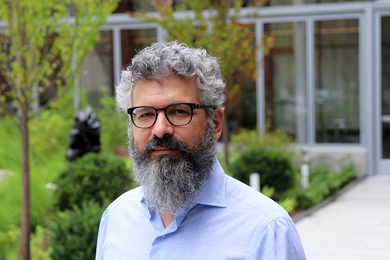The Massachusetts Institute of Technology will raise tuition and fees by 4.7 percent to $28,230 for 2002-2003, a hike of $1,270, President Charles M. Vest has announced.
The cost of room and board will go up an average of 4.4 percent, putting the overall cost for tuition, fees, room and board at $36,060, up 4.64 percent.
The increase includes a $200 fee to be paid by all graduate and undergraduate students to be devoted exclusively to enhancing the quality of student life, providing additional funds for student groups, activities and organizations, club sports, and the operations of the new Zesiger Sports and Fitness Center, scheduled to open in August. Students will not be required to pay an additional fee to use the state-of-the-art facility. Faculty, staff, family and alumni will continue to pay a fee.
"The separate fee arrangement creates a new pool of resources to support student life activities," said Chancellor Phillip L. Clay.
"The fee is expected to generate almost $2 million. The largest share will go to support the Zesiger Center. In addition, the Dean for Student Life and the Dean for Graduate Students will have $600,000 to support activities for both undergraduate and graduate activity. At the undergraduate level, the resources will support increased funding for the class councils, large events and for weekend activities. The Graduate Students Office will support both departmental initiatives and house initiatives to enhance graduate community life. Both Deans will explore new ideas for building community. More than $1 million will support the operation of the Zesiger Center. The remaining resources will support enhancements to both residential and community life on campus and in FSILGs.
"The new tuition and fee total places MIT well within the range of what our peers have announced as increases this year," said Chancellor Clay. The increase in tuition compares with 4.8 percent at Stanford, 4.1 percent at Princeton, and 5 percent at Cornell.
While some universities charge different tuition and fees to students at different levels or in different programs, MIT continues its tradition of a single tuition and fee structure for all students (except for certain programs in Sloan). Both graduate and undergraduate students will be able to benefit from the additional programs and activities that will be supported by the new fee.
Seventy-five percent of MIT students receive financial aid, most of it based solely on financial need. The average need-based grant for the current year is $19,000. A student's self-help contribution, reduced by $2,000 a year ago, will remain the same at $5,600.
MIT estimates that the actual cost to the Institute of educating a student will be approximately double the amount of tuition. The difference is made up by contributions from alumni and alumnae and others as well as earnings on the endowment.





